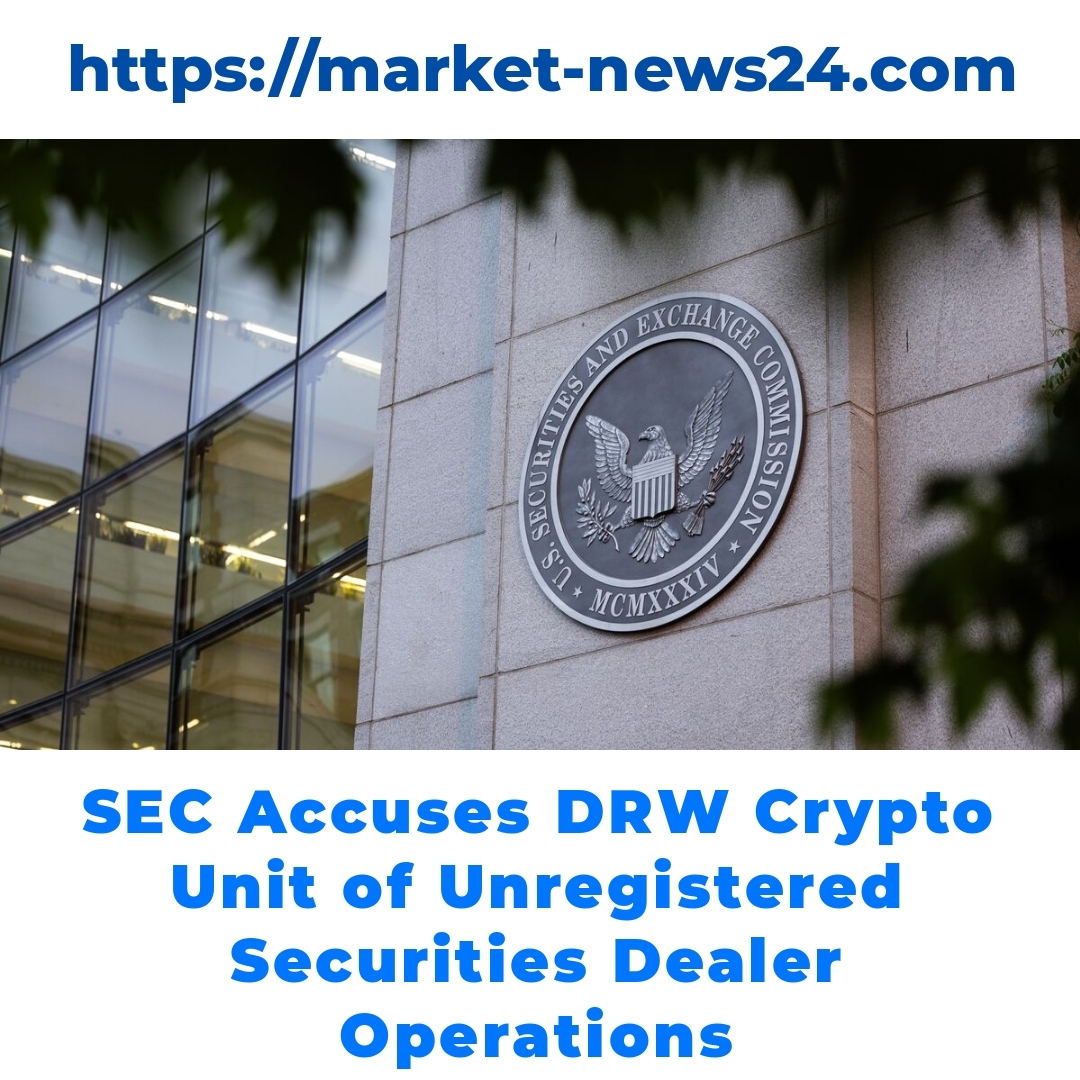The SEC plays a crucial role in regulating financial markets, particularly as the significance of Cryptocurrency Regulation rises. Recently, DRW Holdings LLC, a prominent Chicago-based trading firm, faced serious accusations from the SEC regarding their cryptocurrency operations. This article explores these allegations and their implications for the future of digital assets.


Overview of the SEC’s Accusations
DRW Holdings LLC is well-known as a Chicago-based proprietary trading giant, with its fingers in multiple pies, including cryptocurrency. Their cryptocurrency arm has recently come under scrutiny, leading to serious accusations from the SEC. These allegations center around their operations as they are claimed to be functioning as an Unregistered Securities Dealer, dealing with a staggering amount exceeding $2 billion in Digital Assets.
Details of the SEC’s Allegations
The SEC has framed DRW Holdings as an Unregistered Securities Dealer, which holds significant implications for both the firm and the wider cryptocurrency market. Without the necessary registration, their trading activities could shake the very essence of market integrity. The SEC’s focus on such large-scale operations involving Digital Assets underscores the need for regulation in this rapidly evolving sector.
The Concept of an Unregistered Securities Dealer
Definition and Implications
An Unregistered Securities Dealer is essentially a firm that engages in the business of buying and selling securities without being registered with the SEC. This lack of registration can lead to multifaceted issues regarding market manipulation, fraud, and investor protection. Without oversight, markets can become susceptible to risks that can potentially harm investors and other market participants.
Case Studies of Past SEC Actions
The SEC has taken a firm stance against similar accusations directed at other cryptocurrency firms in the past. For example, companies like Ripple faced significant backlash for similar violations. Each of these cases resulted in varying degrees of penalties and moratoriums on trading activities, highlighting the serious nature of operating without the necessary regulatory framework. These cases serve as relevant precedents that frame the current situation with DRW Holdings.
The Impact of SEC Regulations on Digital Assets
Current Regulatory Landscape
The current landscape of Cryptocurrency Regulation in the U.S. is complex and often ambiguous. There are frameworks in place, but many companies, including those in Chicago like DRW Holdings, struggle to navigate these waters due to unclear guidelines. This lack of clarity often leaves firms vulnerable to regulatory actions, as they try to comply with conflicting directives.
Implications for the Cryptocurrency Market
The SEC’s actions, such as those against DRW Holdings, can have far-reaching effects on market dynamics. Regulatory scrutiny can lead to a decrease in trading volumes, as traders and investors become more cautious amid fears of compliance failures. Furthermore, the landscape for cryptocurrency regulation is likely to evolve rapidly, leading firms to adapt quickly or risk facing similar challenges in the future.
The Broader Context of SEC Actions Against Cryptocurrency Firms
The Rise of Cryptocurrency in Chicago
Chicago has emerged as a significant hub for cryptocurrency trading and investment. The city is home to many proprietary trading firms engaged in the sector. With increased activity comes increased scrutiny, as the SEC flexes its regulatory muscles to ensure that firms like DRW Holdings adhere to the legal standards expected of them in this fast-paced environment.
Potential Consequences for Market Participants
As the SEC ramps up its fight against unregistered operations, the consequences could ripple through the market. Traders and investors may face heightened risks as the regulatory landscape evolves. Furthermore, firms striving for compliance may have to implement stringent measures to prevent regulatory violations, possibly leading to increased operational costs.
Conclusion
In conclusion, the SEC’s accusations against DRW Holdings are a critical reminder of the complexities surrounding Cryptocurrency Regulation. As more firms operate in the digital assets space, understanding the implications of these actions becomes essential for all market participants. The regulatory landscape is an ever-evolving environment, and staying informed is crucial for both compliance and strategic planning in the future of Digital Assets.
What are the main accusations the SEC has against DRW Holdings?
The SEC accuses DRW Holdings of operating as an Unregistered Securities Dealer, which means they are allegedly buying and selling securities without being registered with the SEC. This operation involves dealing with over $2 billion in Digital Assets.
Why is DRW Holdings being labeled as an Unregistered Securities Dealer?
DRW Holdings is being labeled as such because they are allegedly engaged in trading activities that fall under the category of selling securities, but without the necessary registration. This can pose serious risks related to market manipulation, fraud, and lack of investor protection.
What are the potential implications for DRW Holdings?
The implications for DRW Holdings could include penalties, trading bans, and increased scrutiny from regulators. This situation may also impact the firm’s operational capabilities and market reputation.
How do SEC accusations affect the overall cryptocurrency market?
- Increased regulatory scrutiny may lead to reduced trading volumes.
- Firms might become more cautious, impacting market dynamics.
- The legal framework around cryptocurrency is evolving, possibly causing firms to adapt quickly.
What has been the SEC’s stance on other cryptocurrency firms?
The SEC has previously taken action against other cryptocurrency firms for operating without proper registration. Notable cases include Ripple, which faced significant penalties. These past actions illustrate the serious nature of non-compliance in the cryptocurrency sector.
What challenges do companies like DRW Holdings face regarding regulation?
Many firms face challenges due to the ambiguous and complex regulatory landscape in the U.S. Cryptocurrencies are rapidly evolving, and unclear guidelines can leave firms vulnerable to regulatory actions, complicating their compliance efforts.
What should market participants do in light of these regulations?
Market participants should stay informed about the regulatory landscape, ensure compliance with existing laws, and be prepared for changes. This awareness is crucial for strategic planning in the digital assets market.





